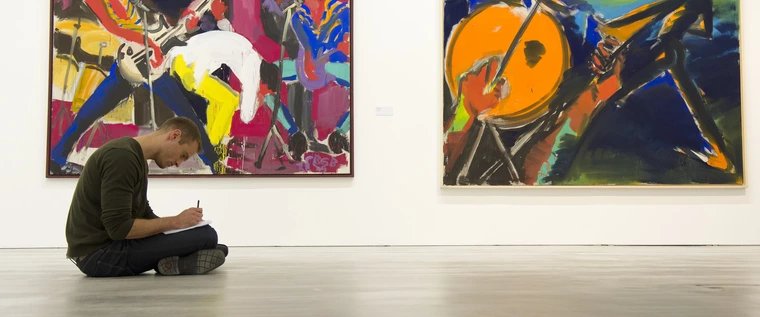
In 2014, a team of independent journalists left Russia to escape pressure and censorship. In exile, they created Meduza, now one of the most important independent Russian-language media outlets.
The decade that followed has been marked by frustration and turmoil: war in Europe, the pandemic, the climate crisis, the rise of authoritarianism, the erosion of democracy, and deepening polarisation.
The exhibition “No”, curated by Meduza, is a multidisciplinary project that weaves together contemporary art and documentary testimonies. It immerses the audience into the experiences of ordinary people who have learned to live and work in extreme circumstances.
The title “No”, «Нет» in Russian, is a statement of resistance. It is a word that has become dangerous to say in today’s Russia — a word that can lead to imprisonment or murder. This exhibition unites the voices of those who continue to say no — to dictatorship, censorship, fear and war. It is an homage to independent journalists, political activists and all those who have the courage to disagree.
This exhibition tells about an era at the turning point — but, more importantly, about a person who encountered great historical events. Such a collision always leads to tragic consequences. In this project, we see people who talk about their experiences — about the experience of life under a dictatorship and in exile, about their experience of war. This is a conversation thatbrings more questions and no simple answers. But it is no coincidence that the exhibition is called “No”: it is also our no to fear and silence, censorship and self-censorship. — Curatorial team.
Documentary
The exhibition’s storytelling is structured around two narratives: the works of 13 international artists and a documentary project created specifically for the exhibition. This non-fiction section, directed by playwright Mikhail Durnenkov, features close-up video portraits of Meduza journalists and contributors — people who have witnessed this historical time. Featured contributors include reporters Taisia Bekbulatova, Elena Kostyuchenko, Svetlana Reiter and Lilia Yapparova, writer Zhenia Berezhna, film critic Anton Dolin, photographer Alexander Gronsky, Meduza’s cofounders Ivan Kolpakov and Galina Timchenko, and others.
Notions
Drawing on an analysis of Meduza’s headlines from the last 10 years, the exhibition explores the defining themes of the past decade: Dictatorship, Resilience, Censorship, War, Exile, Fear, Polarization, Loneliness, and Hope. Each one is refracted in artworks and journalistic testimonies.
The final room, Hope, leaves the visitor with no easy answers. Instead, it asks a simple yet profound question: Why do those who report, create, resist — keep doing what they do? Their answers are complex, but one thing is clear: artists and journalists alike are sounding the alarm. Like canaries once taken into coal mines to warn of toxic gas, their voices are reminders of our shared humanity — and our shared responsibility to protect it.


